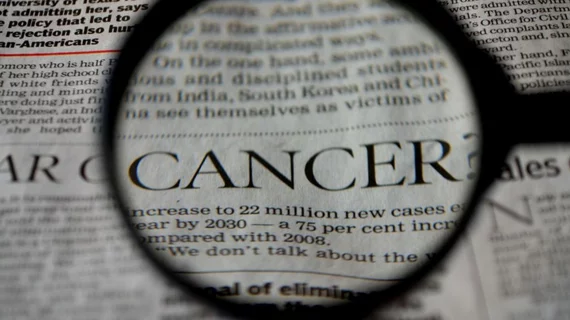CV outcomes underreported in pivotal anticancer trials
A recent review of pivotal cancer drug trials suggests that CVD and adverse cardiovascular outcomes are underreported in studies of new cancer therapies, despite an increasing risk of cardiotoxicity in oncological drugs.
There has been a notable uptake of new anticancer therapies in the U.S. in the past two decades, first author Janice M. Bonsu, MPH, and colleagues wrote in the Journal of the American College of Cardiology, where their paper was published ahead of print. In the 20 years since the turn of the millennium, the FDA has pushed more than 120 novel cancer drugs through to market.
But those years also saw a marked increase in cardiotoxicity in anticancer therapies, limiting the efficacy of dozens of medications. Cancer patients are typically already at a heightened risk for CVD at the time they begin their treatment—more so now than ever before—so keeping cardiotoxicity to a minimum is critical.
“Cardiovascular disease has become increasingly prevalent among cancer patients receiving novel cancer therapies, with a reported incidence of up to 20%,” Bonsu, of the Ohio State University Medical Center, and co-authors wrote in JACC. “Unfortunately, many of these events are not well-explained by traditional CVD risk factors, and both their frequency and severity often differ from those reported in isolated supportive clinical trials.”
In an effort to determine whether CVD outcomes and major adverse cardiovascular events (MACE) are routinely reported within pivotal anticancer clinical trials, Bonsu and her team combed the Drugs@FDA and MEDLINE databases, clinicaltrials.gov and FDA drug reviews for phase II and III trials supporting FDA approval of anticancer drugs. They considered reports logged between 1998 and 2018 and established a primary outcome of MACE, defined as incident MI, stroke, heart failure, coronary revascularization, atrial fibrillation or CVD death.
The search uncovered 189 trials that evaluated 123 anticancer drugs. A total of 97,365 participants with 148,138 person-years of follow-up were included in the studies.
Over an average follow-up of 30 months, Bonsu et al. noted 1,148 incidents of MACE in the trial populations (375 heart failures, 253 MIs, 180 strokes, 85 arrhythmias, 29 revascularizations and 246 CVD deaths), with most cases observed in the trials’ intervention arms (792 vs. 356 in the control arms). Just 62.4% of trials reported any CVD.
The overall weighted-average incidence of MACE in the team’s review was 542 events per 100,000 person-years, compared with 1,408 events per 100,000 person-years in similarly aged, non-cancer trial subjects. That made for a risk difference of 866.
“These findings suggest a general underreporting and/or appreciation of CVD events among cancer clinical trial participants,” the authors wrote. “This is concerning, particularly given the growing prevalence of limiting CVD among patients treated with novel anticancer therapies. Moreover, these discrepancies may in part underlie the discordance between perceived CVD risk and that observed in actual clinical care.
“Additional studies are needed to determine whether incorporating patient-reported outcomes or more rigorous event adjudication enhances the consistency of cardiovascular event reporting in clinical trials of cancer therapeutics.”
Related Cancer Therapy Cardiotoxicity Content:
Succeeding with Cancer: Using Imaging to Avoid Treatment-induced Heart Failure
Providers must rethink traditional imaging approaches to prevent cardiotoxicity in cancer patients
CV programs struggling to keep up with growing demand for cardio-oncologists
Machine learning predicts drug cardiotoxicity
Prior cardiotoxicity linked to 30% increased risk of CHF during pregnancy
CDK2 inhibitors protect cancer patients from anthracycline-induced cardiotoxicity
Genetic variants could be key to identifying chemo-induced cardiotoxicity
T2 mapping may uncover cardiotoxic marker early enough to prevent heart failure
Some chemo drugs might be more heart-safe than others
Cardiac MRI-derived T2 mapping may help heart failure patients
Genetic variant linked to chemotherapy-induced cardiomyopathy
Study calls for better collaboration between cardiologists, oncologists
Cardiac monitoring may protect high-risk breast cancer patients against heart failure

